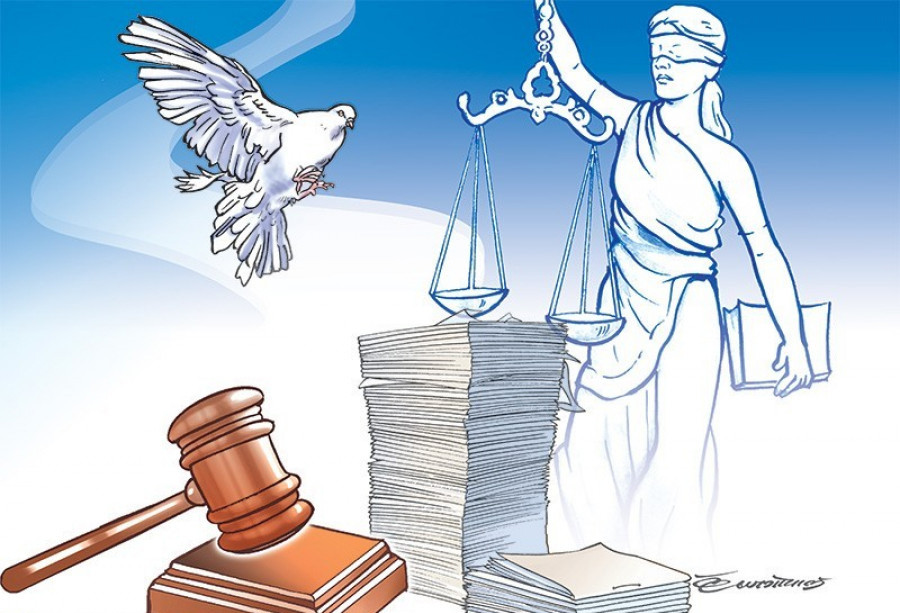National
Transitional justice could be an issue for Nepal at the upcoming Human Rights Council meet
It is likely that questions will not be too critical, but at the Universal Periodic Review in November, the government is certain to face serious queries, say activists.
Anil Giri
At the upcoming 43rd session of the United Nations Human Rights Council, Foreign Minister Pradeep Gyawali is certain to face a series of difficult questions, especially regarding the lack of progress on Nepal’s transitional justice process.
Gyawali will address the high-level segment of the Human Rights Council on February 25, according to the Ministry of Foreign Affairs.
Though officials are confident that Nepal can respond to any critical query at the annual human rights meeting, at least five international organisations are likely to take up the issue of transitional justice with the Nepali delegation, say rights activists.
International Commission of Jurists, Amnesty International, International Center for Peace and Integration, Human Rights Watch, and Trial International will raise the issue of Nepal’s failure to hold a wide range of consultations with victims and stakeholders while preparing laws related to transitional justice and constituting the two transitional justice commissions, two activists following developments in Geneva told the Post on condition of anonymity.
“This time, the issue of Nepal’s sluggish transitional justice process will be raised in a mild manner. But in November, if Nepal can’t move it forward in a credible way, it will face serious questions,” said one human rights activist.
In November, Nepali officials will join the Human Rights Council’s Universal Periodic Review, under which nearly 200 human rights organisations are working on a report on the country’s overall human rights conditions and issues related to transitional justice, said the activist. Informal Service Center (INSEC), a Kathmandu-based human rights organisation leads the reporting process.
Government officials, however, are confident that the issue of transitional justice will not figure in the council meeting. “We are in very good order so I do not foresee transitional justice coming up in the council meeting,” said Bharat Raj Poudyal, the foreign ministry’s spokesperson accompanying the minister to Geneva.
“The situation we had in 2005-2006 is over. The council is not paying any attention to us. Some may ask us what we are doing, but that is quite usual. But no discussion will take place on Nepal’s transitional justice issue.”
Sushil Pyakurel, a former member of the National Human Rights Commission and a co-founder of INSEC, said there will be fewer concerns from the international community this time around, but some members may raise issues related to Nepal’s human rights record.
“What I see is more specifically and strongly, the overall human rights record and transitional justice process will be raised during the November meeting,” said Pyakurel.
Gyawali is expected to make the case for Nepal’s improved human rights situation, focusing on its progress in law-making processes related to human rights and transitional justice, and the formation of two commissions related to transitional justice. The government is taking the Council meeting as an opportunity to try to convince the international community that Nepal is capable of handling the transitional justice process on its own.
“I do not have a detailed idea on who will raise the issue but there are chances that some member states could raise our human rights record and the delayed transitional justice process,” said Mohna Ansari, a member of the National Human Rights Commission who is also attending the council’s meeting.
There have been significant concerns from several international organisations time and again regarding the slow transitional justice process and the failure to ensure that the process takes conflict victims on board.
The government recently reformed the Truth and Reconciliation Commission and the Commission of Investigation on Enforced Disappeared Persons, but the process to select commissioners has been widely decried by victims and human rights organisations for being politically motivated.
The mandate for the two transitional justice bodies—formed in 2015—had expired last year without much to show. The government only began the process to reform the two commissions after protests from victims demanding that the commissions be allowed to do their work free of political influence.
On February 13, conflict victims refused to cooperate with the disappearance commission’s consultation programme until the transitional justice law is amended in line with a 2015 Supreme Court ruling. The Supreme Court has ordered the government to ensure that there is no amnesty for perpetrators of serious human rights abuses during the conflict. The amendment has yet to be made but the law ministry has begun work, again without taking the concerns of victims into account.
Nepal is a member of the Human Rights Council and Kathmandu has already announced its candidacy for another term (2020-22).




 14.24°C Kathmandu
14.24°C Kathmandu















